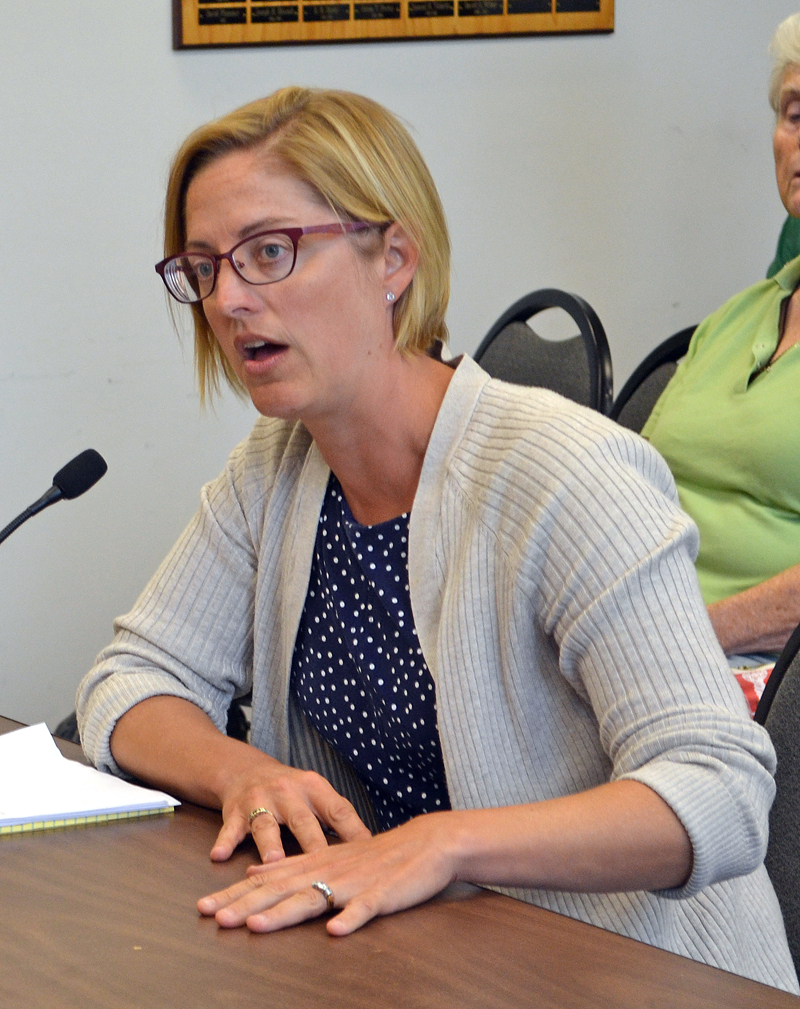
Damariscotta town attorney Jenny Villeneuve discusses a petition for a moratorium on commercial development during the Damariscotta Board of Selectmen’s meeting Tuesday, Aug. 15. (Maia Zewert photo)
A petition from Damariscotta residents calling for a moratorium on commercial development is invalid due to a technical error, but needs only a minor fix, according to town attorney Jenny Villeneuve.
On Aug. 7, a group of Damariscotta residents submitted the petition calling for a temporary ban on new retail buildings of larger than 2,500 square feet and on any new construction, expansion, or use that requires approval under town ordinances. The petition needed at least 116 signatures of registered voters – 10 percent of the votes cast in the last gubernatorial election.
Town Clerk Michelle Cameron verified that the petition received 149 signatures from voters last week.
However, due to a change in the state statute for petition certification, the petition is invalid due to the absence of a town of residence with a majority of the signatures, Villeneuve told the Damariscotta Board of Selectmen during its Tuesday, Aug. 15 meeting.
Under the statute, a petition must have the printed name, signature, address, and town of each person who signs, Villeneuve said. The person circulating the petition may write down all but the signature.
Although the issue “seems very small,” Villeneuve recommended Cameron rescind the petition’s verification to clear up the issue.
“If the statutory requirement isn’t met, it places at risk the validity (of the petition),” Villeneuve said. “It would be very easy for any other citizen, a potential developer, or anyone else to say ‘this moratorium doesn’t apply to me.’”
In order to alleviate the issue, the circulators of the petition would need to write in the town of residence for each signature and resubmit the petition, Villeneuve said. They would not have to circulate a new petition.
Once the petition is resubmitted and verified, it would go before the board of selectmen, which would schedule a vote on the matter.
Kimberly Sampson, one of the circulators of the petition, asked why a verified petition would need the selectmen’s approval before going before the voters.
Villeneuve said there are some examples of petitions that should not go before voters, including illegal ordinances, and the selectmen’s placement of a petition before the voters is part of the statutory process.
Villeneuve will continue her review of the petition’s language when it has been resubmitted and verified, she said.






